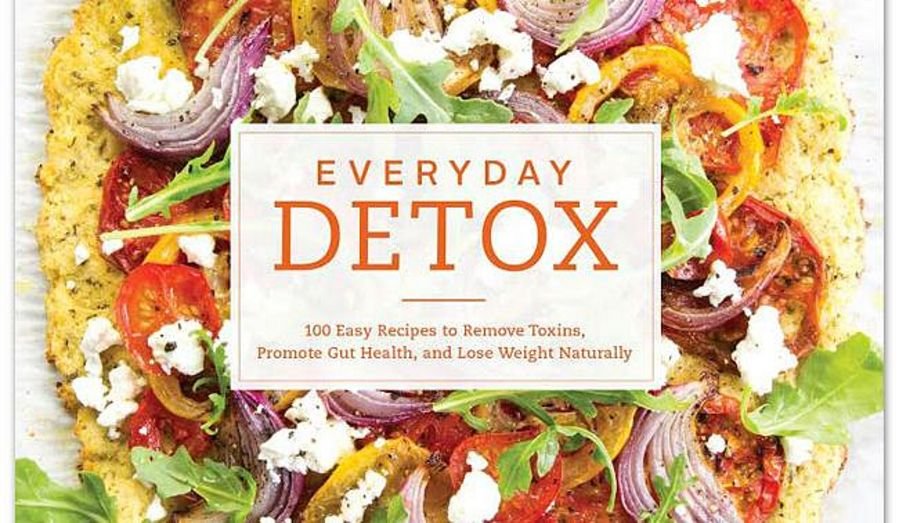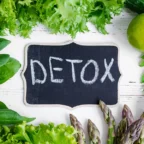Detoxing is a popular term in health and wellness, but many still find themselves uncertain about what it really means, how it works, and why it’s so widely advocated. Whether you’re considering a detox program, interested in cleansing your body, or simply curious about the hype, this guide will provide the answers you need. In this ultimate guide, we’ll explore the science behind detoxing, the benefits and potential risks, and practical tips to incorporate detoxing into your lifestyle.
What is Detoxing?
At its core, detoxing refers to the process of eliminating toxins and waste products from the body. These toxins can come from a variety of sources, including the environment, food, and even metabolic byproducts created during digestion and other bodily processes. The concept of detoxification has ancient roots, with many cultures advocating purification practices through fasting, special diets, herbs, or other methods.
While detoxing is commonly associated with fasting or juice cleanses, it’s important to understand that detoxification is a natural process that happens continuously in the body. The liver, kidneys, digestive system, and even skin play a vital role in removing harmful substances from the body.
How Does Detoxing Work?
The body’s detoxification system is incredibly sophisticated. The liver, kidneys, intestines, and lymphatic system all work together to remove toxins that accumulate over time. Here’s a brief overview of how these organs contribute to detoxification:
- The Liver: The liver is the body’s primary detoxifying organ. It processes harmful substances, including alcohol, medications, chemicals, and metabolic waste. It transforms fat-soluble toxins into water-soluble substances that can then be excreted via urine or bile.
- The Kidneys: The kidneys filter waste products and excess substances, including water, electrolytes, and metabolic byproducts, which are then eliminated through urine. They also help regulate the balance of fluids and electrolytes in the body.
- The Digestive System: The digestive system, particularly the intestines, eliminates toxins and waste through bowel movements. It also supports the absorption of nutrients and helps maintain a healthy gut microbiome, which can impact how efficiently the body detoxifies.
- The Skin: The skin acts as a secondary detox organ. It removes toxins through sweat. When you sweat, your body expels not only excess salts and water but also certain toxins that may be stored in fat cells.
While the body does a great job of detoxifying on its own, certain lifestyle habits, including a poor diet, sedentary behavior, and high toxin exposure, can overwhelm these systems. This is where a detox regimen may come into play.
Types of Detoxing
There are many different detox methods, and understanding them is key to determining what might work best for you. Here are some popular types:
1. Fasting Detox
Fasting is one of the oldest detox methods. By restricting food intake for a specific period, the body can focus on eliminating stored toxins. Common fasting approaches include intermittent fasting or water fasting. However, fasting should be done with caution, particularly for extended periods, as it can have side effects if not done correctly.
2. Juice Cleanses
A juice cleanse involves consuming fresh fruit and vegetable juices for several days to help cleanse the body. The idea behind this method is that the nutrients in the juices will flood the body with antioxidants, vitamins, and minerals while giving the digestive system a break. Juice cleanses typically last between 3 to 10 days.
3. Herbal Detoxes
Herbal detoxes rely on specific herbs and supplements to support the body’s natural detoxification process. These may include teas or tinctures made from plants like dandelion root, milk thistle, or turmeric. Herbal detoxes can be a gentler approach to cleansing the body.
4. Colon Cleanses
Colon cleanses, or colonic irrigation, are designed to clear the intestines of waste and toxins. While some people swear by colon cleanses, there is limited scientific evidence supporting their effectiveness. However, maintaining regular bowel movements through fiber-rich diets is crucial for detoxification.
5. Dietary Detox
A dietary detox focuses on eliminating processed foods, sugar, alcohol, and caffeine, while emphasizing whole, unprocessed foods such as fruits, vegetables, and healthy fats. This method is often sustainable over the long term and supports overall health without extreme deprivation.
Benefits of Detoxing
- Improved Digestion: Detoxing can help improve the function of the digestive system, leading to less bloating, better nutrient absorption, and reduced symptoms like indigestion or constipation.
- Increased Energy: By removing toxins from the body, many individuals report feeling more energized and less fatigued during and after a detox program.
- Clearer Skin: A detox regimen may help reduce acne, eczema, and other skin conditions by flushing out toxins that can lead to inflammation and skin irritation.
- Weight Loss: Detoxing can be a tool for jumpstarting weight loss. By eliminating processed foods and focusing on nutrient-dense options, many people experience initial weight loss from the reduction of toxins and water retention.
- Stronger Immune System: The body’s immune system works better when it isn’t burdened by harmful toxins. Detoxing can help improve immune function, leading to better overall health and fewer illnesses.
Potential Risks of Detoxing
While detoxing can be beneficial, it’s important to approach it carefully. Some of the potential risks include:
- Nutrient Deficiency: Extreme detox programs that involve fasting or juice cleanses may result in nutrient deficiencies if they are followed for an extended period. It’s essential to ensure that your body is still getting the nutrients it needs.
- Digestive Discomfort: During a detox, you may experience bloating, headaches, fatigue, or nausea. This is often a temporary side effect as your body adjusts to the new routine.
- Unregulated Supplements: Some detox supplements may contain harmful substances or ingredients that can disrupt your health. Always choose reputable products and consult with a healthcare professional before starting any supplement regimen.
- Overuse of Detoxing: Constantly detoxing can place undue stress on the body and may not provide long-term benefits. It’s essential to view detoxing as a short-term tool rather than a long-term solution.
Tips for a Safe and Effective Detox
If you decide to try detoxing, here are a few tips for ensuring your success:
- Stay Hydrated: Water is essential for flushing out toxins. Aim to drink plenty of water throughout the day, especially during your detox program.
- Focus on Whole Foods: Eating a diet rich in fruits, vegetables, whole grains, and healthy fats will naturally support the detox process without the need for extreme detox methods.
- Exercise Regularly: Physical activity can support detoxification by promoting circulation, sweating, and lymphatic drainage.
- Avoid Processed Foods: During a detox, eliminate foods that are high in sugar, caffeine, and artificial additives to give your body a break and reduce the overall toxin load.
- Consult with a Professional: If you have any underlying health conditions or are unsure whether detoxing is right for you, it’s important to consult with a healthcare provider before starting any detox program.
Conclusion
Detoxing is a natural and essential process for maintaining health, but it’s crucial to approach it in a balanced and sustainable way. While certain detox programs and methods can support your body’s detoxification processes, there’s no need to rely on extreme or unproven methods. Instead, focus on incorporating healthy habits, such as eating nutrient-dense foods, staying hydrated, and exercising regularly, to optimize your body’s natural detox functions. Always remember that moderation is key, and before embarking on any detox program, consult with a healthcare professional to ensure it’s the right choice for you.































